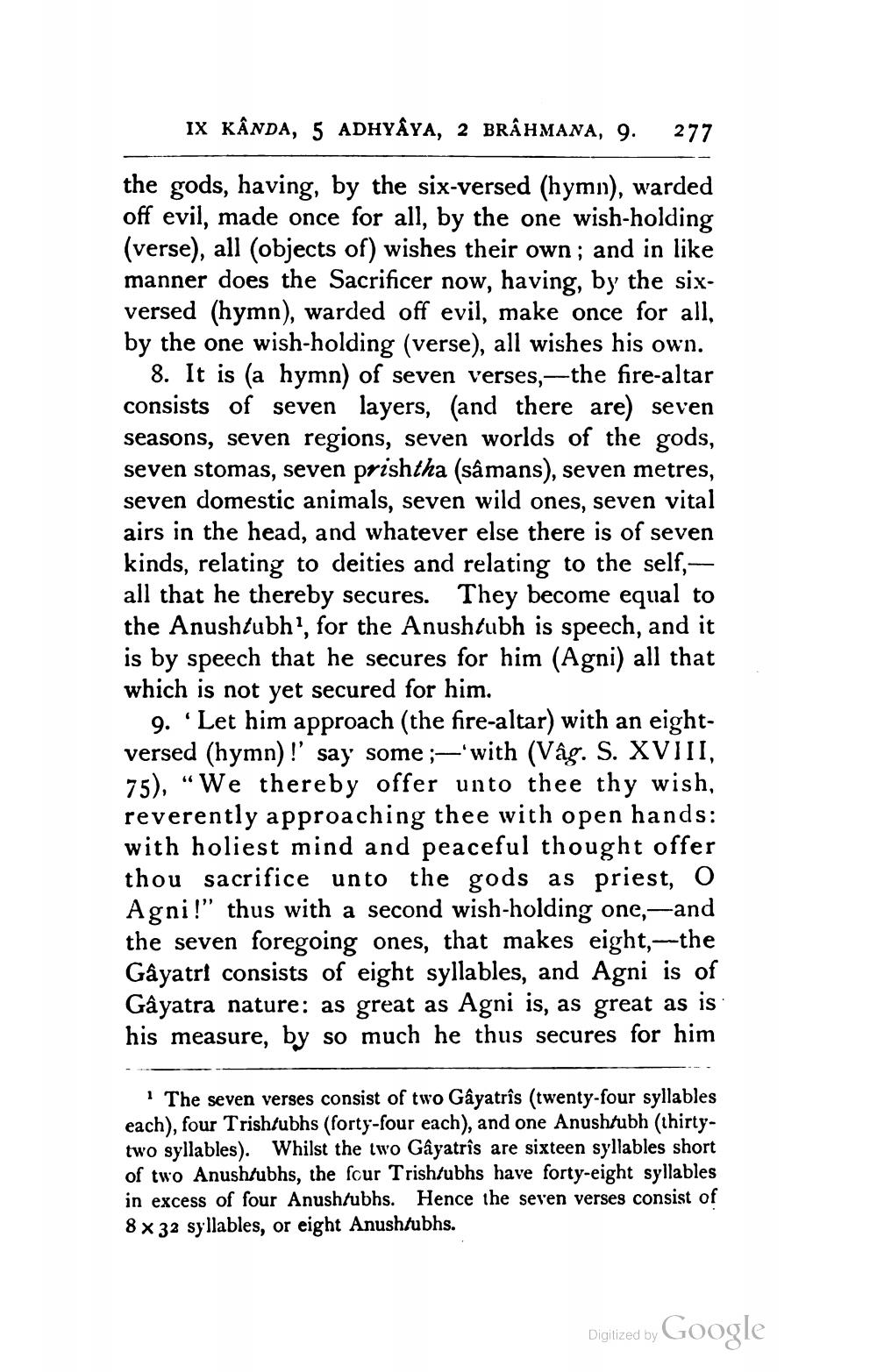________________
IX KÂNDA, 5 ADHYÂYA, 2 BRÂHMANA, 9.
277
the gods, having, by the six-versed (hymn), warded off evil, made once for all, by the one wish-holding (verse), all (objects of) wishes their own; and in like manner does the Sacrificer now, having, by the sixversed (hymn), warded off evil, make once for all, by the one wish-holding (verse), all wishes his own.
8. It is (a hymn) of seven verses, the fire-altar consists of seven layers, and there are) seven seasons, seven regions, seven worlds of the gods, seven stomas, seven prishtha (sâmans), seven metres, seven domestic animals, seven wild ones, seven vital airs in the head, and whatever else there is of seven kinds, relating to deities and relating to the self,— all that he thereby secures. They become equal to the Anushtubh?, for the Anushtubh is speech, and it is by speech that he secures for him (Agni) all that which is not yet secured for him.
9. “Let him approach (the fire-altar) with an eightversed (hymn)!' say some ;—'with (Vâg. S. XVIII, 75), “We thereby offer unto thee thy wish, reverently approaching thee with open hands: with holiest mind and peaceful thought offer thou sacrifice unto the gods as priest, O Agni!" thus with a second wish-holding one,-and the seven foregoing ones, that makes eight,--the Gayatri consists of eight syllables, and Agni is of Gâyatra nature: as great as Agni is, as great as is his measure, by so much he thus secures for him
The seven verses consist of two Gayatrîs (twenty-four syllables each), four Trishtubhs (forty-four each), and one Anushtubh (thirtytwo syllables). Whilst the two Gâyatrîs are sixteen syllables short of two Anush/ubhs, the four Trish/ubhs have forty-eight syllables in excess of four Anushtubhs. Hence the seven verses consist of 8 x 32 syllables, or eight Anushtubhs.
Digitized by Google




